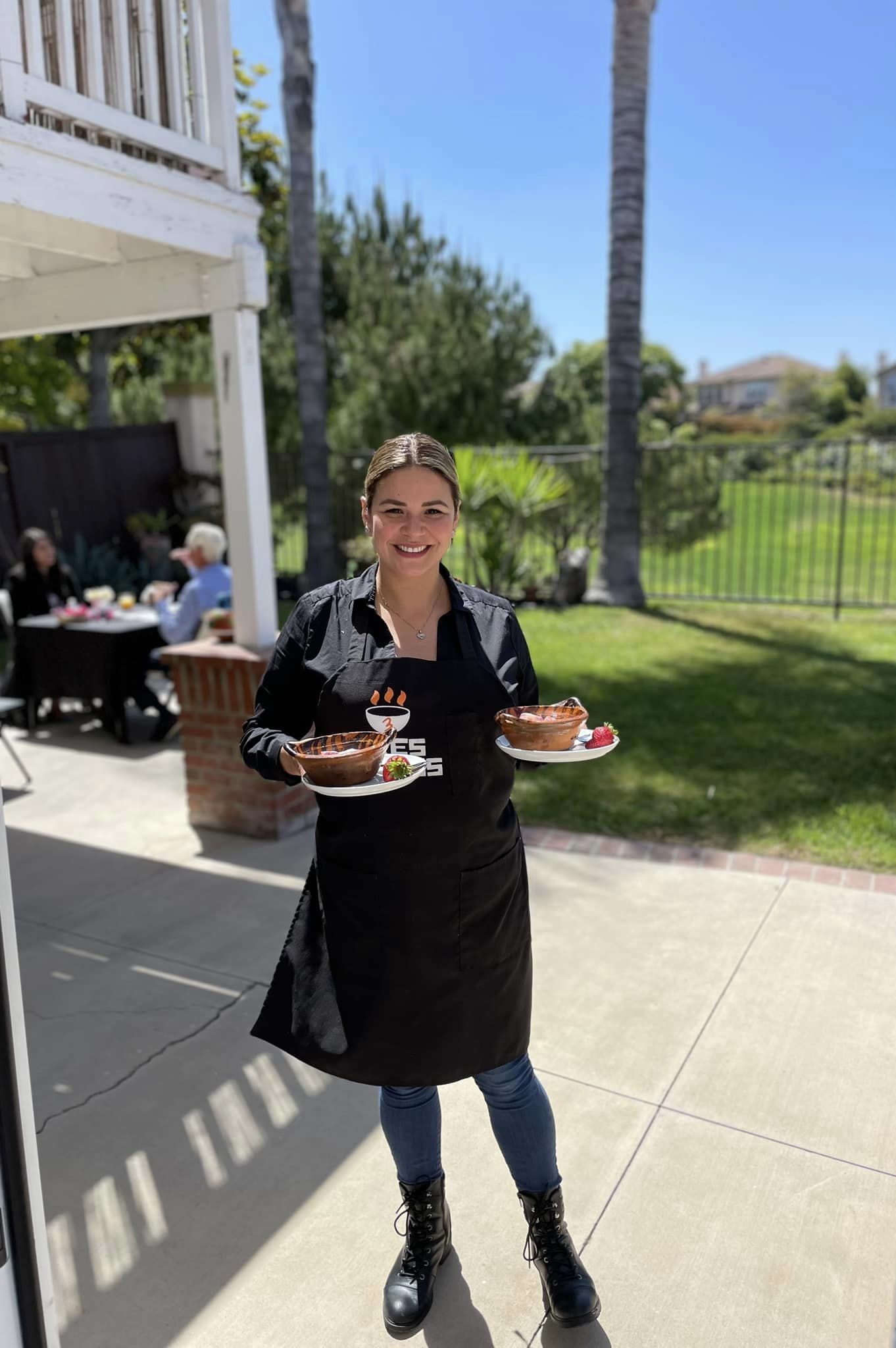By Addison Peterson, CAMEO’s Policy Specialist.
Since 2018, California Micro-enterprise Home Kitchen Operation (MEHKO) laws have allowed aspiring chefs to start their business at home. They no longer have to wait to save for expensive restaurant space or a food truck. This low-cost option allows a chef to narrow down their menu, test their food concepts on customers, and build a strong customer base while still in the business development process.
The Current Landscape
The C.O.O.K. Alliance fall conference, HomeCOOKed 2022, provided updates on the landscape of MEHKO laws across the United States. It also shared inspiring stories from MEHKO chefs in San Diego who talked about how they are faring. The C.O.O.K. California Assemblymember Eduardo Garcia, the legislator responsible for MEHKO laws, kicked off the conference. During the 2021-2022 legislative session, Assemblymember Garcia worked on an $8 million fund to establish and administer a MEHKO program. $5 million will be used for education and training, marketing, food safety certification, and grants to home cooks initial start up costs. $3 million will assist local health departments and city code enforcement agencies with costs incurred from the development of application forms, permitting processes, initial site inspections, and enforcement activities.
An advocacy discussion focused on the rapidly changing landscape for MEHKOs. Thirty states have laws that support MEHKOs. Wyoming and Utah have the most wide-ranging MEHKO laws. These cap a chef’s annual income at $250,000 versus $54,000 in California. Utah does not have income caps, but limits MEHKO permits to15% of all food permits. Challenges in other jurisdictions that have not passed MEHKO laws include concerns over the safety of cooking for the public in a home kitchen. Some restaurants also worry over a potential decrease in business.
Ryan Johnson, of the San Diego Department of Health, shared that their MEHKO program has thus far approved 45 MEHKOs. San Diego’s MEHKO inspection is confined to the home kitchen and typically takes 2-4 hours. The applicant must meet all of San Diego’s guidelines for safety and cleanliness, have a standard operating procedures manual available at all times, and know food safety standards. MEHKO operators can apply for a second permit for a food cart to sell more meals beyond the MEHKO caps. These same MEHKO permitters are not allowed to sell food at farmers markets and must attain a commercial food permit.
Stories from San Diego MEHKOs
MEHKO Chefs Diana Tapiz of Tres Fuegos Cocina and Malcolm “Mal” Suggs of Smoke ‘N Peppers BBQ of San Diego discussed their experiences and regulatory process.
Diana decided she wanted to become a chef shortly after her mother passed from cancer. Diana’s mother had a Birria recipe that was loved by friends and family. They wondered if it would ever do well in a restaurant. Not too long after her mothers passing, she found the C.O.O.K. Alliance and their work with MEHKOs. She became the first person to be inspected and passed by the city of San Diego!
Diana owned a restaurant and was familiar with the commercial permitting process. She felt that the MEHKO permit was much easier to obtain than a commercial one. Diana recommended that anyone starting a MEHKO should call the city health department for a list of guidelines. This could help them pass the inspection the first time. The most difficult adjustment to working for herself is learning how to expand her recipe from 4 people to 50 people. She also struggled on how to price her meals. Diana’s advice to anyone wanting to start their own restaurant is to start with a MEHKO. This way they can practice meal concepts, presentation, and basic business skills.
Malcolm manages his MEHKO on the weekends and during the week he is an IT engineer in the U.S. Navy, where he has served for 16 years. Malcolm cooks food for his Navy friends. They love the food so much they have encouraged him to open a restaurant. Malcolm learned about MEHKOs while researching opening a restaurant. He decided to start at home and build an audience, which he has! Customers across San Diego County come to Malcolm’s neighborhood every weekend just to have his ribs! The permitting process was easy for Malcolm. An inspector carefully went over the guidelines by phone and Malcolm passed on his first inspection. Malcolm’s challenges have been location and marketing. He doesn’t live in the best place and he had to learn how to use social media to attract customers. Malcolm and Diana would like to see the MEHKO income cap of $54,000 removed or increased. This would allow entrepreneurs to save for their next investment!
What the Research Says
Dr. Lijun Chen from the University of Florida’s Food and Resource Economics Department conducted research on the home cooking movement:
- Most chefs said that their motivation for cooking came from preparing meals with family.
- The primary benefits to MEHKOs are flexibility and low cost. Chefs enjoy the ability to be creative and gain important business management experience.
- Most chefs are satisfied with the permitting process.
- Business challenges to MEHKOs are marketing, operations, finance, and permitting.
- Other challenges are preparing and serving the food on the same day and not being able to use third party delivery services in California.
- In states where MEHKOs are legal, third party delivery services have mixed results. They are either helpful or cost prohibitive to the business.
- Scheduled pickups have been a better pickup option to reduce traffic in neighborhoods.
- The neighborhoods where chefs operate enjoy having a MEHKO in their community. MEHKOs have created small community spaces for neighbors to come together.
- Some chefs are considering offering a dine-in option in their homes or creating backyard spaces to have outdoor dining.


